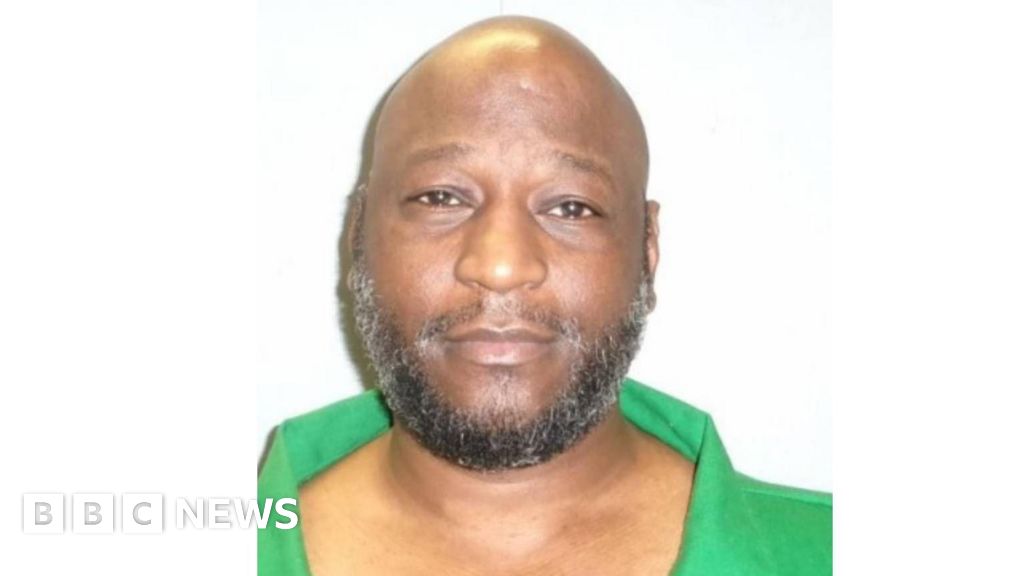South Carolina executed its first death row inmate in 13 years, administering a lethal injection to Freddie Owens.
Owens, 46, was found guilty by a jury of killing operator Irene Graves during an armed robbery in Greenville in 1997.
He was executed despite his co-accused signing an affidavit this week saying Owens was not present at the time of the robbery and murder.
The South Carolina Supreme Court refused to stay Owens’ execution, saying the claims were inconsistent with testimony given at his trial.
Owens was executed at the Broad River Correctional Institute in Columbia, South Carolina, on Friday night.
He was pronounced dead at 18:55 local time (22:55 GMT) after being injected with a drug called pentobarbital. He made no final statement.
His death followed a pause in executions in the state because prison officials were unable to obtain the drugs needed for lethal injections.
Owens was sentenced to death in 1999, two years after killing Graves, after being convicted of murder, armed robbery and criminal conspiracy.
The day after he was found guilty, he killed his cellmate in prison, reports CNN affiliate WHNS.
According to the report on his trial by the South Carolina newspaper The State, Owens was 19 when he and Steve Golden, then 18, held Graves at gunpoint as they attempted to rob the convenience store where she worked.
Owens shot and killed Graves after she failed to open a safe under the counter, according to testimony provided by Golden at Owens’ trial.
At the time of her death, Graves was a 41-year-old single mother.
Owens’ lawyers have tried to stay his execution a few times, including twice in September. But the court rejected each request.
In the latest attempt, the lawyers pointed to an affidavit signed by Golden on Wednesday, which claimed Owens was innocent.
The court denied the request to stay the execution saying the new affidavit was “grossly inconsistent with Golden’s testimony at the Owens trial in 1999” and the statement he gave to police immediately after his arrest.
Other witnesses said Owens told them he shot Graves, prosecutors said.
Advocates against the death penalty and Owens’ mother also appealed to the state for clemency, which was denied by Gov. Henry McMaster.
Hours before his execution, Owens’ mother said in a statement that it was a “grave injustice that was perpetrated against my son.”
“Freddie has maintained his innocence since day one,” his mother, Dora Mason, said, according to the local Greenville News.
Inmates in South Carolina are allowed to choose whether they want to die by lethal injection, electric chair or firing squad.
Owens referred the decision to his attorney, who chose the lethal injection option for him, according to the Greenville News.
Reporters who witnessed the execution said Graves’ family members were also present.
